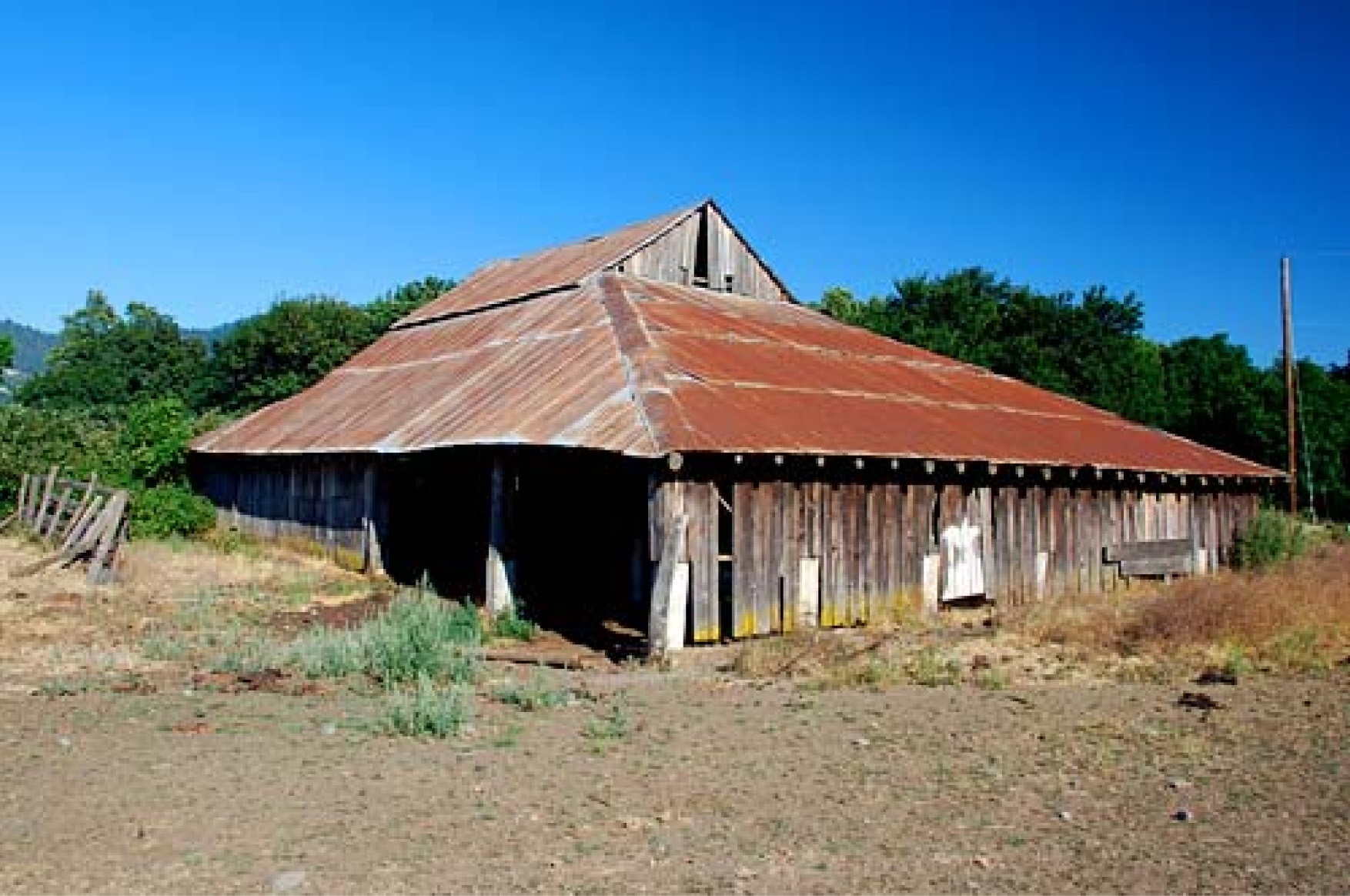 A rustic old barn on the Birdseye Ranch in Jackson County near the Rogue River. The ranch was founded in 1853. (Oregon State Archives Scenic Images collection)
A rustic old barn on the Birdseye Ranch in Jackson County near the Rogue River. The ranch was founded in 1853. (Oregon State Archives Scenic Images collection)
Oregon Wolves
At the dawn of the 21st century, wolves returned to Oregon, sparking conversations that revealed both change and continuity in the complex relationships between Oregon’s peoples and Oregon’s environments. When settlers gathered at the Wolf Meetings of 1843, they created a proto-government to issue bounties on wolves and other predators, a century-long effort that eliminated grey wolves from Oregon by the mid-1940s.
When wolves reappeared in northeastern Oregon in 1999, 25 years after being listed as an endangered species, they inspired a different set of responses. Oregon environmentalists rejoiced in the wolves’ return, embracing the animals as a symbol of wildness and pointing to the role played by predators in the landscapes of northeastern Oregon—concepts that would have been totally foreign to the settlers who gathered at the Wolf Meetings of 1843. In contrast, cattle ranchers saw wolves as predators that destroyed valuable livestock, echoing the arguments of the Wolf Meetings. But by the 21st century, there were no serious suggestions to exterminate wolves. Instead, the Oregon Fish and Wildlife Commission created the Oregon Wolf Conservation and Management Plan (adopted in 2005; revised in 2010; updated in 2019) with the objective of both protecting livestock and recovering a “self-sustaining population” of grey wolves. Town hall meetings, legislative and court hearings, and other public fora about the wolf plan generated plenty of controversy and conflict, particularly when the Commission removed wolves from the state’s endangered species list in 2016. Nevertheless, both environmentalists and ranchers insisted on the need for cooperation as they discussed new approaches to the 150-year-old question of wolves and their place in Oregon.
Compromise and Cooperation
Such conversations and openness to cooperation will be crucial as Oregonians continue to face complex challenges in the 21st century. Economic, social, and cultural differences between rural and urban communities will continue to divide Oregonians on a variety of political issues, from tax policy, public services, and racial justice to land use planning and environmental regulations. Demographic changes will accelerate, producing even more diverse communities that will enrich the state and challenge Oregon’s legacy of homogeneity. Climate change will produce unprecedented environmental transformations in every corner of the state, including rising sea levels, decreased snowpack, unpredictable precipitation, intense droughts and storms, more wildfires and floods, and a host of other dangers. These challenges surely will prompt conflict, as Oregonians confront their different and evolving ways of interacting with their environments. But such challenges will also prompt conversations that may lead to pragmatic compromise and cooperation—an important and defining characteristic of the history of Oregon’s people and environments.
Next:
Further Reading >